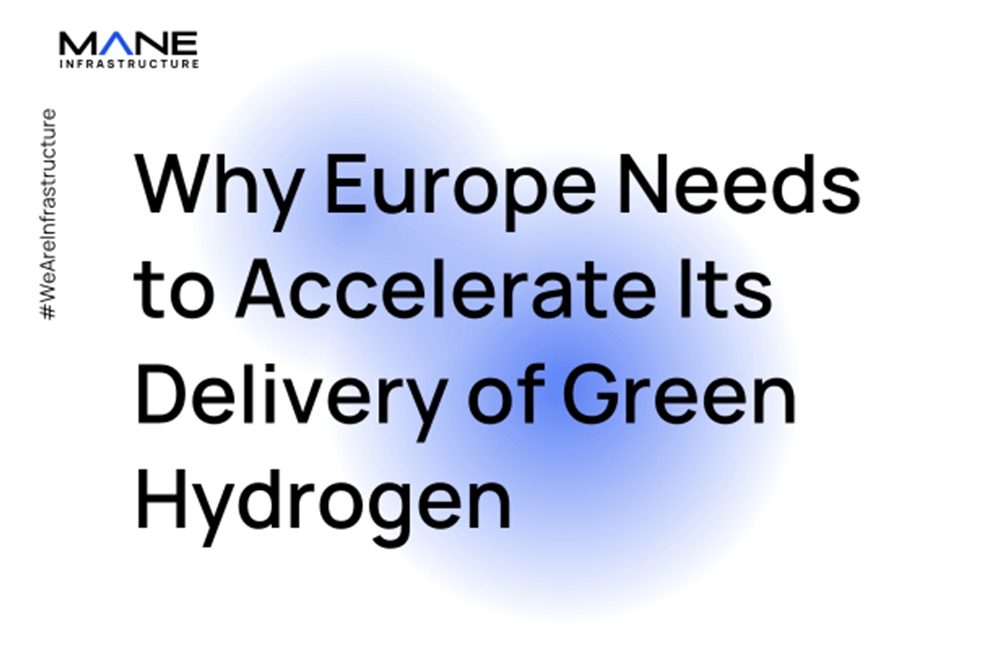Why Europe Needs to Accelerate Its Delivery of Green Hydrogen
20 Sept, 202310 minsAccording to a new report, in order to reach its green hydrogen goals by 2023, the EU needs ...

According to a new report, in order to reach its green hydrogen goals by 2023, the EU needs to accelerate its delivery methods. The report, from Worley and Princeton University, explains that Europe needs to speed up varying hydrogen value chain projects if it wants to meet production goals, and it needs to do so by at least 40%.
Currently, the EU is hoping that by 2023, it will be able to generate 10 million tonnes of green hydrogen per year. However, 90% of global hydrogen production is still driven by fossil fuels. This highlights that green hydrogen doesn’t have the same economy of scale as other forms of energy. The EU is hoping to change this by providing affordable low-carbon hydrogen to a variety of sectors. The report also states that the EU needs to boost its electrolyser and renewable electricity generation capacities if it wants to meet green hydrogen goals; the former by eight times as much, the latter by four times as much.
With Interventions, Scaling Up Delivery is Possible
The Worley and Princeton University report questions whether the delivery process for the various production processes is capable of meeting the current timeline. It highlights that the timelines required are currently likely to exceed ten years, eight years at the earliest, meaning that the EU won’t meet its 2030 target. Luckily, the report also explains that accelerating delivery is possible, with some interventions potentially decreasing green hydrogen delivery times by 40%.
One of the proposed changes include streamlining the planning process, as delays in grid connections are a major hurdle that the EU has yet to overcome. The report highlights the importance of sharing knowledge and aligning all of the green hydrogen industry, enabling varying project teams to communicate and avoid unnecessary delays. One idea that’s been suggested in a taskforce that spans the entire industry, bringing policymakers and experts together.
Dr Paul Egbert, Worley’s Group Director of Sustainability, said: “The proposed initiatives go significantly beyond current practices seen within the industry, but this new level of collaboration and support will be essential for driving investment faster, steering the region towards both sustainable and environmentally conscious energy production.”
The UK’s Low-Carbon Hydrogen Sector is Set to Expand
The UK also has big plans to expand its low-carbon hydrogen sector. According to The Energy Security Strategy from April 2022, the UK’s low-carbon hydrogen target for 2023 has doubled. The goal is now 10GW. The UK has been working on a new standard to determine which types of hydrogen can be classified as low-carbon, and the various ways to support green hydrogen projects.
Brett Ryan, Head of Policy and Analysis, at Hydrogen UK said: “While the UK has access to natural resources that should lend itself to significant renewable electricity generation and hydrogen storage, it is suffering due to delays in obtaining grid connections and a lack of strategic infrastructure planning. The interventions suggested in the report provide some tangible opportunities to address the barriers and are for the most part equally relevant to the UK as they are to the EU."
Having operated since 1993 in the Rail and Infrastructure markets, we understand the emphasis on quick turnaround and high standard recruitment solutions, maintaining emphasis on compliance and legislation.
Covering full project lifecycle supply we are well placed to deliver across rail and infrastructure projects. Get in touch for more information.



